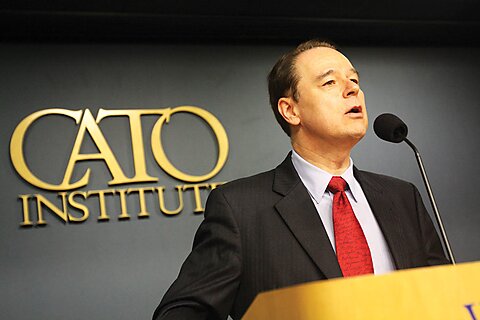
Neal McCluskey
I worked with David Boaz for more than twenty years—indeed, for several years he was my direct boss. Like perhaps everyone who has known and worked with David, I was somewhat in awe of him throughout that time, struck by the immense dedication with which he undertook the work of advancing liberty, and his seemingly limitless knowledge of policy and politics. But his knowledge of my policy area was particularly deep because David was a champion of educational freedom well before I—or the Center for Educational Freedom—existed at Cato.
In 1991, Cato published David’s book Liberating Schools: Education in the Inner City, which made the case for school choice—money following children to chosen schools instead of going directly to government institutions—as the key to delivering better education for inner‐city families. This was published just as modern school choice was beginning with the Milwaukee voucher program.
David also tackled two choice arguments that are crucial but too often overlooked.
He co‐wrote a Briefing Paper in 1996 pointing out that, contra what many reporters and others think when they hear “private school,” most private institutions are not “Dalton, Andover, and Exeter,” with sky‐high tuition that no voucher would likely ever meet. Private schooling consists, instead, largely of schools with tuition appreciably below what public schools spend per student, and hence readily affordable by just sharing the money. Also in 1996, David enunciated the power of choice to end the constant battles we see in public schools over everything from math curricula to books in school libraries. As he wrote:
The way out of this problem is to give parents more control over their children’s education. School choice is usually promoted as a way to improve education–which it is–but just as important, it would allow parents to choose schools that fit their values and preferences.
Allowing people to choose what they think is right—not government deciding for everyone—is the essence of liberty. Consistent with his lifetime work, David Boaz made that clear in education long before many of us had written our first word.







